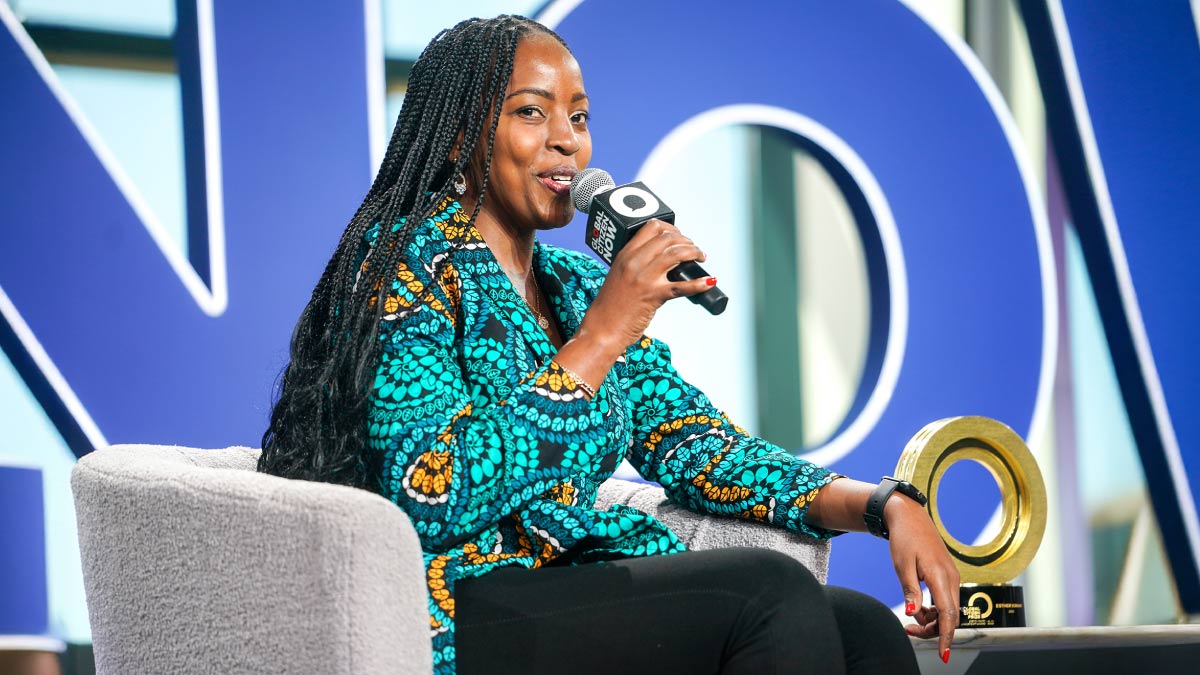Women have been a driving force in all major technology trends, including e-commerce, social media, and hybrid work. And they represent a full 45 percent of esports participants.
Yet the perception that gaming is primarily a male domain persists. And women remain underrepresented in the technology industry — with Deloitte International predicting only a small improvement in the gender gap, with women rising to 33 percent of workers at major technology firms.
International Girls in ICT Day, with Cisco’s support, aims to change all that.
Held this year on April 28, the annual event spans 150 countries to highlight career opportunities for women in tech. That begins by encouraging girls and young women to explore science, technology, engineering, art, and math (STEAM) education. And it continues by helping them see the exciting possibilities in technology.
Cisco has long participated in Girls in ICT Day — to share its own commitment to opening new doors, including career pathways, career attainment, and advancement, helping to close the digital divide, and spotlighting female role models in tech, from within Cisco and beyond.
Emma Reid has been a key leader in that commitment. In addition to her role as a Cisco Networking Academy global marketing manager, she is the founder of Women Rock-IT, a program that empowers girls for the technology opportunities of tomorrow.
“In 2014, when we started, there were a lot of troubling trends,” she said from her home in Sydney, Australia. “A growing number of female students were turning their backs on STEM education, and female enrollments in system-engineer degrees in Australia were less than 2 percent.”
For Reid, those statistics hit home.
“I was worried that my own daughter was going to be ill-prepared for the technology-driven jobs in the future,” she shared.
Rocking IT, and targeting the gender gap
The result was Women Rock-IT, which works in tandem with Networking Academy around the world to promote educational and career opportunities And has shared its programs with 1.8 million girls and women globally (one million of whom subsequently enrolled in Cisco Networking Academy programs).
“It started with the idea of getting more female role models in front of young girls,” she explained. “And share some incredibly exciting stories of women using technologies to solve problems in all types of industries, as well as the opportunities that come from STEAM education, including the arts.”
For this year’s Girls in ICT Day, Cisco will focus on how gamers and esports competitors can transition the skills they are learning online to careers in technology, with a live broadcast sponsored by Networking Academy’s Women Rock-IT.
Rebecca Dixon is one featured speaker. As a co-founder of the*gameHERs, a New York-based organization, she is a strong voice for the connection between gaming and IT skills. The*gameHERs advocates for more women working in esports, which is a $175 billion industry. And with women representing 45 percent of the world’s 2.9 billion gamers, the industry sorely needs the diverse, creative perspective that women offer.
“We sit in the video game industry,” she said, “and we have built our media platform as a safe community for women in the gaming world. The response has been incredible, and our community is growing and thriving."
At the same time, the*gameHERs is devoted to bringing more attention to the great opportunities in the industry — and the benefits that increased diversity will bring.
“We give more visibility to the successes that women can have in this specific sector, through events to coaches and players talks on our collegiate discord, and weekly shows,” Dixon added, “to encourage younger women to go down that road and understand the kinds of careers that got us here in the first place.”
Reid echoed the importance of role models, especially considering the gender biases that persist around tech skills.
“There’s still that classic stereotype,” she said. “We need help from movies, literature, and culture in general, but also families promoting alternative models and options for girls. In Hollywood, for example, the prestigious tech experts nearly always tend to be male. And that can instill self-doubt in even the most confident young women.”
Fun, games, and future success
Gaming is a great way to build the confidence that can lead to an ICT career.
“Gaming creates communities, and gaming can do a whole host of positive things,” Dixon said. “And one positive thing is to open doors to careers in all sorts of STEM, STEAM, and tech-related areas.”
Reid stressed that gaming sparks the same passion for technology that Networking Academy programs aim to instill, and the two combined can contribute to creating the next generation of inspired IT professionals.
“I think gamers and IT professionals are cut from the same cloth,” she said. “Gaming builds confidence, because they problem-solve on the fly. It helps them with their creative interests, strategy, and communication skills. And it’s 100 percent reliant on network technology for safe and reliable gameplay.”
For girls to take advantage of gaming-industry opportunities, however, awareness needs to shift.
“We can start by talking to middle-school kids,” said Dixon. “To create a scenario where it seems completely normal for girls to be playing games, and for them to be in technology classes together with boys.”
The*gameHERs, which started in 2020, shows that momentum for change is building.
“Here we are two years later and we now have half a million women in our community across a variety of social networks and platforms,” Dixon said, “and we’ve really been able to be the start of something that’s going to continue to grow.”
That growth will encourage more women to seek out jobs in esports and other areas of tech they feel passionate about. And that’s a win-win for all of us — and the planet. Technology innovators will be called upon to solve many of our most pressing problems, and we cannot afford to miss out on the creativity, collaboration, and outright genius of anyone.
“Women are among the biggest users of technology,” Reid concluded, “and women should be behind creating it as well. Diversity really does matter, and you need all kinds of different viewpoints to create great technology.”
###




